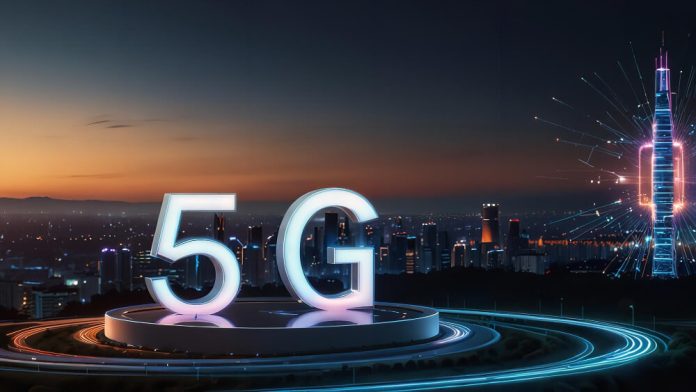The fifth generation of mobile networks, commonly known as 5G, promises to revolutionize mobile technology in ways we could only imagine a few years ago. It is set to bring about changes in speed, connectivity, and the way devices interact with one another and the internet. But what exactly is 5G, and how does it differ from previous generations?
What is 5G?
5G is the latest advancement in mobile network technology, designed to offer faster speeds, lower latency, and more reliable connections. It is based on advanced radio frequencies and improved technology that allows for a greater volume of data to be transmitted across the network simultaneously.
Key Differences Between 4G and 5G
Compared to 4G, the current standard, 5G offers several key improvements:
- Speed: 5G can offer download speeds up to 100 times faster than 4G, reaching 10 gigabits per second.
- Latency: 5G drastically reduces latency (the delay between sending and receiving information), making it possible for real-time communication and more instantaneous reactions from devices.
- Capacity: 5G can support a higher density of devices in a given area, making it ideal for environments with many connected devices like smart cities.
Global Rollout of 5G: Timeline and Progress
The global rollout of 5G is underway, with countries like the United States, South Korea, and China leading the charge. However, the deployment timeline varies across regions, with some countries still in the early stages of 5G adoption.
The Key Features of 5G Technology
The rapid advancement of 5G technology brings several groundbreaking features that will define the future of mobile technology.
Ultra-Fast Speeds: 5G’s Gigabit Potential
One of the most exciting aspects of 5G is its speed. While 4G networks can offer speeds of up to 100 megabits per second (Mbps), 5G networks can reach speeds of up to 10 gigabits per second (Gbps). This will not only make activities like downloading movies and streaming 4K videos smoother but will also enable more advanced applications like cloud gaming and 3D holograms.
Low Latency and Its Impact on User Experience
Latency refers to the delay between sending a request and receiving a response. With 5G, latency can be reduced to as little as one millisecond, making it nearly instantaneous. This is crucial for applications that require real-time interactions, such as online gaming, remote surgery, and autonomous vehicles.
Enhanced Connectivity and Network Reliability
5G is designed to support a larger number of connected devices. With its ability to handle massive Machine-Type Communications (mMTC), 5G will play a key role in enabling the Internet of Things (IoT), where billions of devices—from household appliances to smart industrial machines—are interconnected.
How 5G Is Transforming Mobile Devices
5G will not just change how we use the internet, but also the very way we interact with mobile devices.
Faster Internet on Smartphones
The primary impact of 5G on mobile devices is the internet experience. 5G will significantly enhance mobile broadband capabilities, enabling faster browsing, quicker downloads, and improved performance for high-bandwidth apps, such as video conferencing, media streaming, and cloud-based services.
The Role of 5G in Smartphones and Tablets
Leading smartphone manufacturers like Apple, Samsung, and Huawei are already integrating 5G into their devices. This means that 5G smartphones will be able to handle new, high-performance applications that previously required specialized hardware or high-end computers.
Impact on Mobile Gaming and Entertainment
5G will open up new possibilities in mobile gaming by offering ultra-low latency and high-speed data transfer. Cloud gaming services like Google Stadia and NVIDIA GeForce NOW will benefit immensely from 5G, as it allows for smoother, lag-free gaming experiences. Furthermore, AR and VR gaming will become more immersive thanks to higher data rates and reduced latency.
5G and the Internet of Things (IoT)
5G will be a game-changer for the Internet of Things (IoT), connecting billions of devices and enabling them to interact in real time.
How 5G Powers Smart Homes and Smart Cities
With 5G, smart home devices will become more responsive and reliable. From smart thermostats to security systems, 5G will allow devices to communicate more efficiently. Moreover, in smart cities, 5G can support sensors for traffic management, waste collection, and energy-efficient solutions, improving urban living conditions.
5G in Autonomous Vehicles
The future of autonomous driving relies heavily on 5G networks. Vehicles will be able to communicate with each other, traffic lights, and infrastructure in real-time, leading to safer, more efficient driving experiences.
5G in Wearable Technology
The next generation of wearable devices—such as smartwatches, health trackers, and augmented reality glasses—will leverage 5G’s fast data transfer speeds. For example, real-time health monitoring and medical device integration will be vastly improved with 5G’s capabilities.
5G and the Future of Mobile Applications
With 5G, the mobile app ecosystem is set to evolve in exciting ways.
The Rise of Augmented Reality (AR) and Virtual Reality (VR)
5G will be a driving force for AR and VR applications, providing the necessary bandwidth and low latency for immersive experiences. These technologies will find their place not only in entertainment but in education, healthcare, and retail.
Next-Generation Mobile Apps: What We Can Expect
As 5G enables faster data transmission, mobile applications will become more sophisticated. Expect to see new apps for remote work, social media, streaming, and more. These apps will be able to offer features that were once only possible on desktop computers or in dedicated environments.
Impact on Mobile Cloud Computing and Edge Computing
Mobile cloud computing will also benefit from 5G’s low latency. Users will be able to access and interact with cloud services seamlessly. Moreover, edge computing—which processes data closer to where it’s needed—will be enhanced, allowing for even faster responses from cloud-based applications.
Business Applications and Opportunities
5G is not just about faster speeds; it will fundamentally change industries and business models.
The 5G-Enabled Digital Transformation of Industries
From manufacturing to agriculture, 5G is set to drive the digital transformation of various industries by enabling smarter factories, better data analytics, and more efficient supply chains.
5G’s Impact on Healthcare and Telemedicine
In healthcare, 5G will allow for faster data transfer between hospitals and doctors, improving the quality of telemedicine and remote diagnostics. Surgeons will be able to perform robotic surgeries with greater precision, thanks to 5G’s low-latency communications.
How 5G Will Improve Supply Chain Management
5G will revolutionize supply chain management by enabling real-time tracking of goods, enhancing automation in warehouses, and improving logistics. This will reduce inefficiencies and costs, benefiting businesses and consumers alike.
The Challenges of Implementing 5G Networks
While 5G has great potential, its widespread adoption will face several challenges.
Infrastructure Needs and Costs
Building a global 5G network will require significant investments in infrastructure, including new cell towers, fiber optics, and data centers. The costs of building and maintaining this infrastructure will be a challenge for many countries.
Security and Privacy Concerns
The increased connectivity and data exchange brought by 5G raises important concerns about privacy and cybersecurity. Safeguarding the data of individuals and businesses will be critical as cybercriminals take advantage of new vulnerabilities.
Potential Health Concerns and Public Perception
There have been concerns about the potential health effects of 5G’s higher-frequency radio waves. While studies have yet to conclusively prove any risks, public skepticism remains, and proper education and research will be necessary to address these concerns.
The Future of 5G Networks
As 5G networks continue to expand, we can look forward to a future defined by even more transformative technologies.
The Role of 5G in 6G and Beyond
The success of 5G will pave the way for 6G—the next generation of mobile networks—which is expected to offer even faster speeds, lower latency, and even more advanced features. 5G will serve as the foundation for these future advancements.
Emerging Technologies Powered by 5G
Emerging technologies, such as artificial intelligence, machine learning, and blockchain, will be significantly enhanced by the high-speed, low-latency capabilities of 5G. These technologies will usher in new possibilities in everything from data processing to automation.
Conclusion
5G is poised to shape the future of mobile technology in profound ways. From ultra-fast internet and low latency to the Internet of Things and industry transformation, its impact will be felt across all aspects of life. As the global rollout continues, we can expect even more exciting innovations powered by 5G. The economic impact of 5G will be enormous. It is expected to generate billions in new revenues and jobs while spurring innovation across every industry, from healthcare to transportation.
I hope you find the above content helpful. For more such informative content please visit Techedgedemand.












